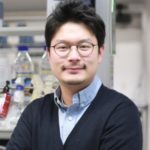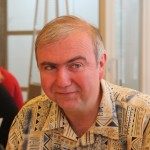Présentation
Our PTR project investigates at the complex interface between the intracellular pathogen Leishmania and its macrophage host cell. We will apply systems-wide analyses to elucidate the molecular mechanisms underlying the reciprocal metabolic relationship between parasite and macrophage, with a focus on parasite released ecto-kinases and their role in modulation of host cell signaling and immune subversion. The major aim of our project is to identify host substrates of Leishmania ecto-kinases and host factors that are involved in Leishmania/host cell interaction, and to evaluate the potential of those factors as novel anti-leishmanial drug targets. The specific objectives are:
Objective 1: To study the impact of intracellular Leishmania infection on macrophage protein expression and phosphorylation
Leishmania modulates the metabolism and immune functions of its macrophage host cell to propagate its own survival. To gain insight into this subversion strategy we will investigate the impact of intracellular Leishmania infection on the macrophage phenotype using label-free quantitative proteomics for the global analysis of the proteome and the phospho-proteome of primary macrophages infected with L. donovani parasites. These approaches will establish a very first systems-level insight into Leishmania- induced modulation of host cell functions and signaling pathways as a consequence of parasite-released factors, which are investigated in Objective 2.
Objective 2: To reveal the impact of the Leishmania ecto-kinase CK1.2 on macrophage signaling and identify its host cell substrates
The global approach presented in objective 1 will be complemented by a targeted analysis of the Leishmania ecto-kinase CK1.2. CK1.2 has been identified in the Leishmania secretome (Silverman et al, 2008) and is present in exosomes (Silverman et al, 2010), suggesting that CK1.2 may be exported from the parasite into the host cell cytoplasm, where it may interfere with anti-microbial host cell responses. Using biochemical approaches and mass spectrometry analysis, we will identify the host cell substrates for this parasite kinase to gain insight into pathways that are modulated by the parasite. These proteins could represent interesting novel targets for future anti-leishmanial drug discovery.
Objective 3: To discover host genes involved in modulating intracellular Leishmania infection at different stages and identify anti-leishmanial inhibitors that target the corresponding host pathways
We propose a genome-wide host siRNA screening exploiting our high content imaging capability to identify host factors that regulate intracellular parasite growth and survival. Based on our findings we will evaluate the concept of targeting host proteins for the development of anti-leishmanial compounds through a chemical approach. These approaches will provide significant new insight into the host/Leishmania interactome and establish a first proof-of-principle for anti-leishmanial drug discovery targeting host pathways.
In conclusion, our project is highly multidisciplinary involving molecular parasitology, high content imaging, genome wide RNAi screening, high throughput screening technology and global label free proteomics approaches. The proposed objectives will be delivered by synergizing cutting edge infrastructure and scientific expertise through a collaborative effort of units within the Institut Pasteur International Network.
Coordinator
- Joo Hwan No, Head of Leishmania Research Laboratory, Institut Pasteur Korea
Partners
- Gerald Spaeth, head of Unité de Parasitologie moléculaire et Signalisation, Institut Pasteur, Paris
- Julia Chamot Rooke, head of Structural Mass Spectrometry and Proteomics Unit, Institut Pasteur, Paris
- Mariette Matondo, responsible of Proteomics Platform, Institut Pasteur, Paris
- David Shum, Assay Development and Screening, Institut Pasteur Korea








